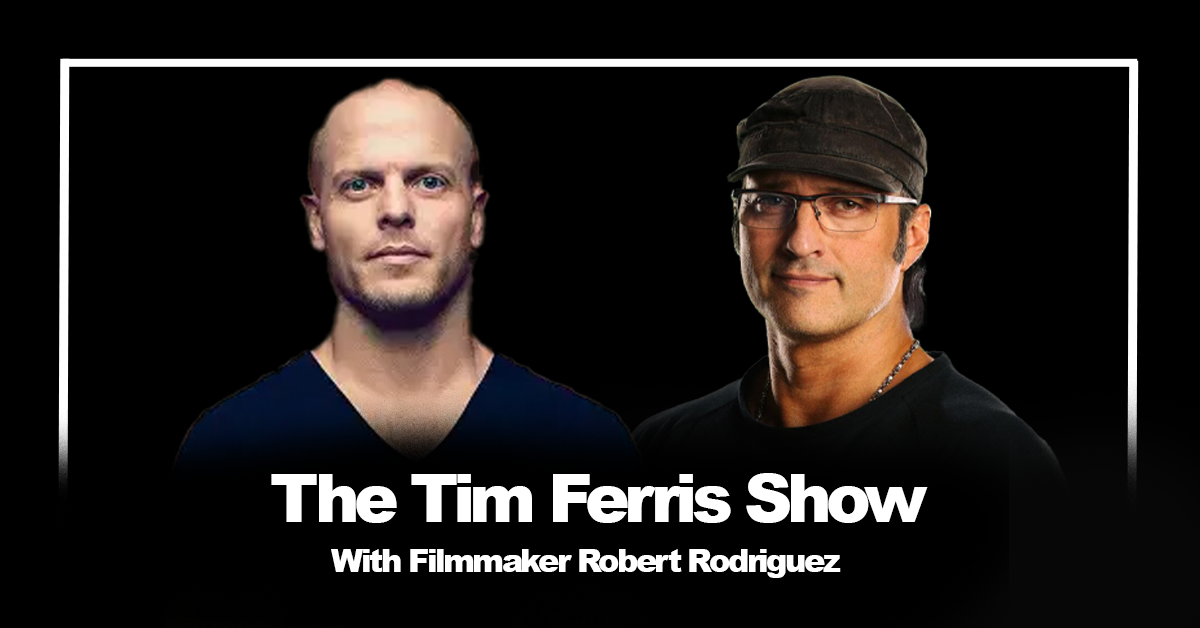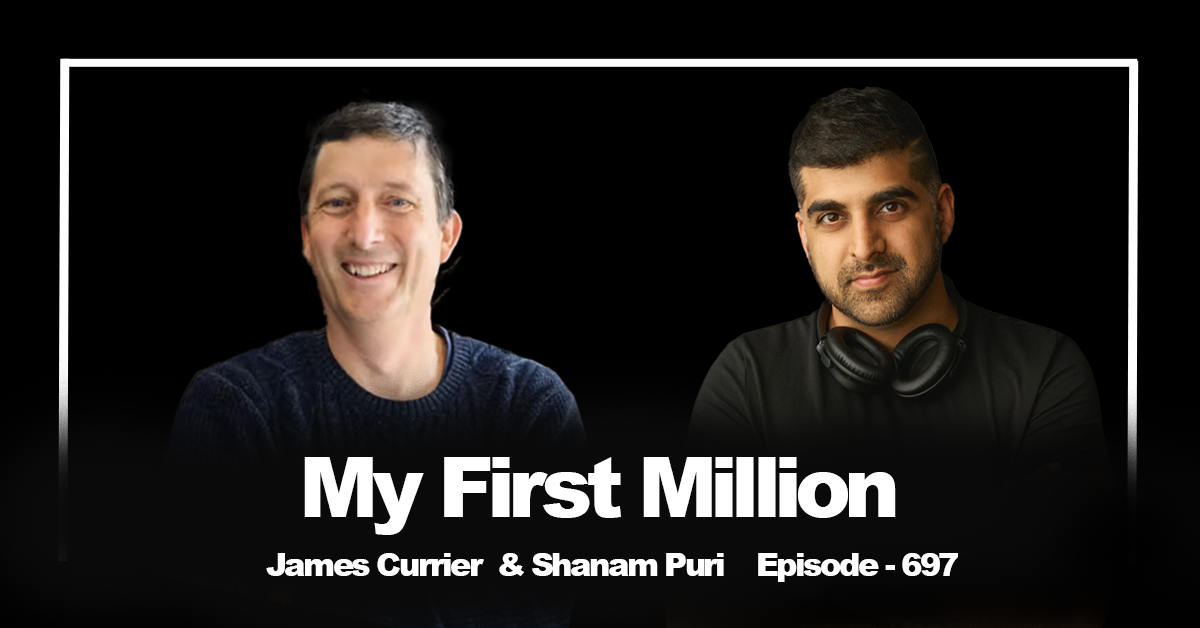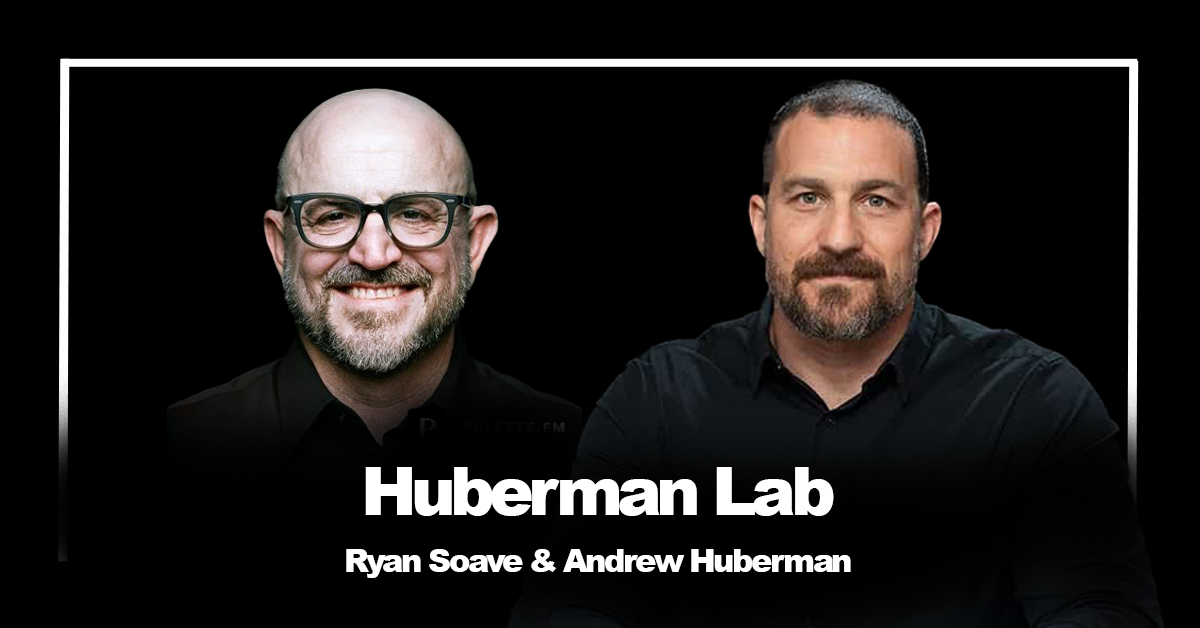Get ready for a deep dive into the creative mind of legendary filmmaker Robert Rodriguez. Fresh off the release of the Rebel Without a Crew audiobook (his diary from making El Mariachi for $7,000), Robert sits down with Tim Ferriss to discuss the journey, the power of constraints, the importance of action over aspiration, journaling as a life tool, and his new venture, Brass Knuckle Films.
This conversation is a whirlwind of anecdotes, creative philosophy, and practical advice, bouncing from the early DIY days of El Mariachi to navigating Hollywood, raising creative kids, and finding inspiration in unexpected places.
Here are the detailed key insights and takeaways:
1. Rebel Without a Crew & The Power of Action:
- The Origin: The book chronicles Robert’s experience making his first feature film, El Mariachi, for an incredibly low budget ($7,000) by doing almost everything himself.
- Impact: It became an inspiration for countless filmmakers and entrepreneurs, demonstrating that resourcefulness and action can overcome lack of resources. The core idea: focus on what you do have, not what you don’t.
- Freedom of Limitations: Having extreme constraints (tiny budget, minimal crew) forced creativity and made the process more freeing, not less. An unlimited canvas can be paralyzing.
- Audiobook Reflection: Revisiting the diary 30 years later was wild. He’d forgotten many details, highlighting the value of journaling for capturing history and providing perspective.
2. Journaling as a Foundational Tool:
- Living is Reliving: Robert argues that journaling is crucial because memory fades quickly. Documenting experiences (even simple daily logs, emails to family, etc.) allows you to “relive” and appreciate moments later, giving them iconic status. He regrets not journaling more earlier.
- Capturing History: His journals provided the raw material for Rebel Without a Crew. He encourages everyone to keep some form of record, especially during significant life events or creative projects.
- Seeing Patterns: Looking back at journals reveals patterns, insights, and how far you’ve come, providing valuable perspective and counteracting the feeling of being stuck.
- Partner Journaling: Having his partner journal too provides another perspective on shared experiences, enriching the memory.
3. Creative Process & Overcoming Doubt:
- Action First, Inspiration Second: Don’t wait to be inspired to create. Start the action (pick up the pen, camera, guitar), and the creative spirit will often flow through you. Inspiration follows action.
- No Human Doubts?: Robert claims he doesn’t have human doubts, not out of arrogance, but because the process is the goal. If you commit fully and embrace the journey, even failures become valuable data points and fuel for the next step. Know your process, trust it.
- The Conduit Metaphor: Views himself as a conduit for creative energy. Getting the ego out of the way allows ideas to flow through more easily. Comparing this to Keith Richards feeling like riffs just come through him.
- Failures Fuel Success: His biggest movie successes (like Spy Kids and Sin City) came directly from analyzing and learning from a previous “failure” (Four Rooms). Digging through the ashes of failure reveals the keys to future success.
4. Labels & Identity:
- Stop Aspiring, Start Being: Don’t call yourself an “aspiring” filmmaker/writer/whatever. If you do the work, you are that thing. Make a business card, embody the identity. Labels shape reality.
- Changing Identity: Used the example of quitting smoking – you have to change your identity from “smoker trying to quit” to “non-smoker” for the change to stick. Applied this to his own journey with exercise, shifting his identity to “athlete” despite hating working out initially.
5. Parenting & Mentorship:
- Challenge Your Kids: Believes in putting kids in challenging situations (like working on his films) to build confidence and capability, rather than just telling them they’re capable. Action builds self-belief.
- Project-Based Life Lessons: Views working on films with his kids not just as filmmaking, but as teaching life lessons through project-based challenges.
- Partner, Don’t Just Parent: Especially as kids become teenagers, shift from dictating to partnering. Offer mentorship, share experiences, but allow them agency.
- Nepotism vs. Enabling: Argues against the negative connotation of nepotism if it involves genuinely teaching, enabling, and providing opportunities for family to build skills and confidence, rather than just unearned giving. Sees working with family as incredibly rewarding.
6. Brass Knuckle Films: A New Model
- Fan-Funded Action Slate: Robert is launching a new venture, Brass Knuckle Films, focused on creating a slate of action movies funded directly by fans via Republic (allowing non-accredited investors).
- Giving Fans Access: Inspired by the desire fans have to be involved, the model allows fans to invest, potentially pitch ideas, get perks, and share in the success, starting the relationship with the audience from day one.
- Keeping Budgets Low: Leverages his existing resources (studio, props, vehicles) and DIY filmmaking ethos to make internationally appealing action films at lower budgets ($10-30M range), increasing the odds of profitability for fan investors.
- Democratizing the Process: Aims to remove the “smoke and mirrors” of traditional studio filmmaking and bring fans into the creative process.
7. Anecdotes & Observations:
- Rick Rubin’s Sauna: Meeting Rick Rubin for the first time in his infamous sauna, leading to a deep conversation about creativity despite Rubin initially not knowing who Robert was.
- Meeting John McBride: A chance breakfast meeting with Australian literary professor John McBride turned into a lifelong friendship and mentorship, inspiring Robert’s deep dives into Japanese pilgrimage walks.
- Japan Experiences: Contrasted the vibrant but sometimes shady nightlife of Tokyo’s Golden Gai district with the profound spiritual experiences on the ancient Kumano Kodo trail.
- Hollywood Weirdness: Shared funny stories about navigating the egos and eccentricities of Hollywood, including encounters with actors who embody their roles 24/7 (like Daniel Day-Lewis as Lincoln).
Final Thought:
Robert Rodriguez remains a force of creative energy, constantly innovating not just in what he makes, but how he makes it. This conversation was a powerful reminder of his core philosophies: embrace constraints, take action relentlessly, trust the creative process (even when it feels messy), learn from failure, document your journey, and most importantly, find joy and passion in the work itself. His new venture, Brass Knuckle Films, represents another bold attempt to democratize filmmaking and empower both creators and fans.
Find updates on Robert’s projects and Brass Knuckle Films.
Listen to the full Tim Ferriss Show episode here: [Link to Episode]
Until next time,
The Podcast Notes Team





